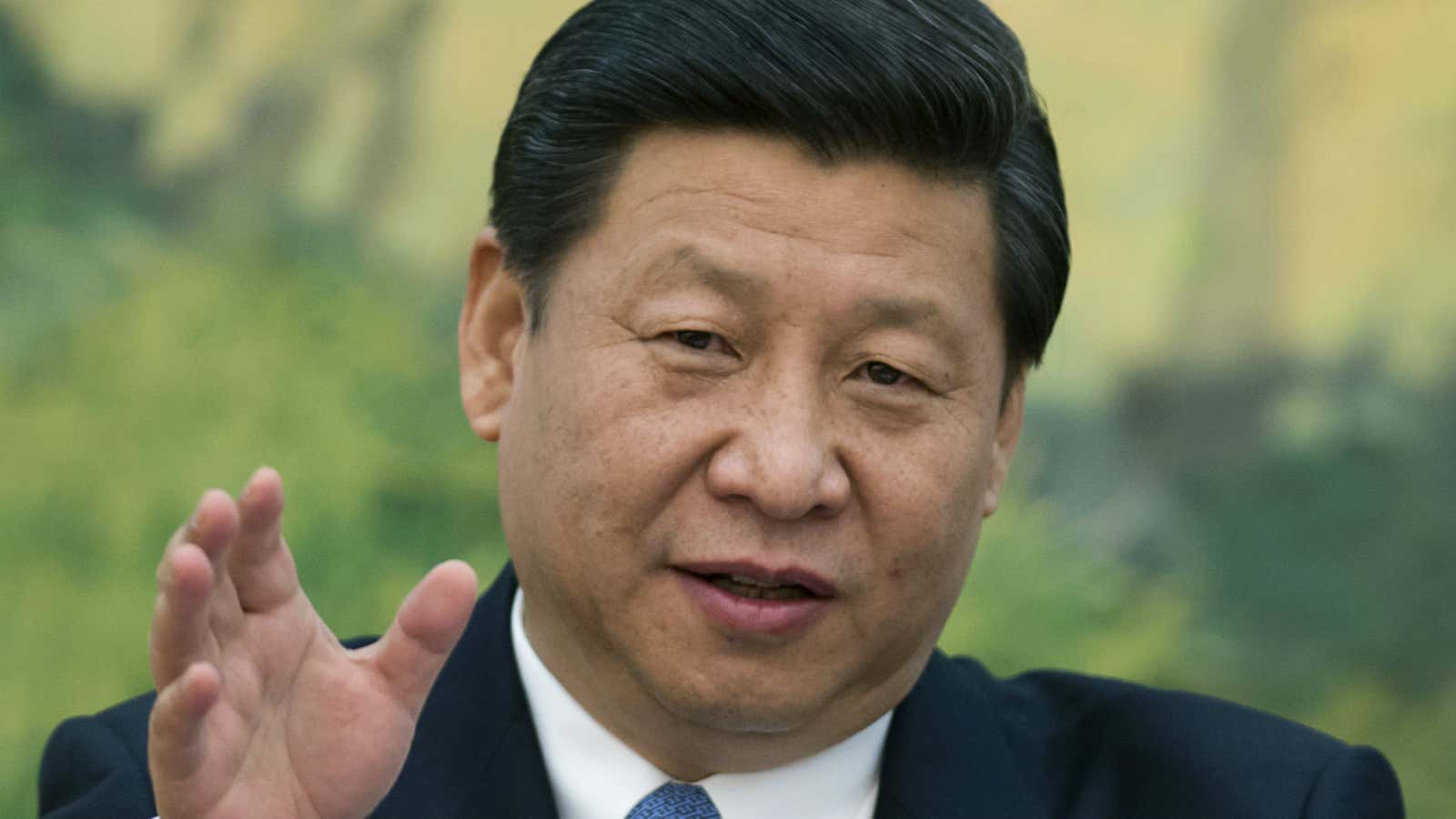The past is present in Asia these days, with China making pointed references to Japanese aggression during World War II, and the Philippines comparing China’s actions in the South China Sea to those of Nazi Germany. So it’s hardly a surprise that Chinese president Xi Jingping is trying to score some rhetorical points with his upcoming trip to Germany, where he hopes to visit the Holocaust Memorial and other historical sites to embarrass Japan, Reuters reports, citing unnamed diplomats.
Xi especially hopes to highlight “German atonement for its wartime past,” the diplomats said. In contrast to Germany, where Nazi salutes and memorabilia are outlawed, Japanese prime minister Shinzo Abe and other prominent politicians have refused to stop visiting the controversial Yasukuni shrine that honors the nation’s war dead—including several prominent convicted war criminals. Nearly 300 copies of Anne Frank’s diary have been defaced recently in Tokyo libraries, a coordinated action that may be related to Japan’s request that kamikaze suicide pilots’ farewell letters be enshrined alongside other WWII memorabilia by UNESCO.
German officials have nixed Xi’s Holocaust Museum visit—diplomats told Reuters that ”Germans are really uncomfortable with this kind of thing,” and the country “dislikes China constantly bringing up Germany’s painful past.” But as Xi travels through Germany, the Netherlands, Belgium and France in late March there are plenty of other historical sites related to World War II that he could visit, potentially escalating the bitter historical arguments already underway in Asia—along with very modern arguments about disputed islands in the East and South China Seas.
Europe’s ability to reconcile after the war and build the euro zone has relied on a mostly successful “don’t mention the war” doctrine. Rarely have politicians invoked Nazi Germany’s aggression or brutal massacre of millions of its own citizens, and Germany is now the undisputed economic powerhouse of Europe. For many years Japan filled that role in Asia, but in recent years it has been overtaken by China—a reminder that regardless of the outcome of past conflicts, what really matters is the one yet to come.
